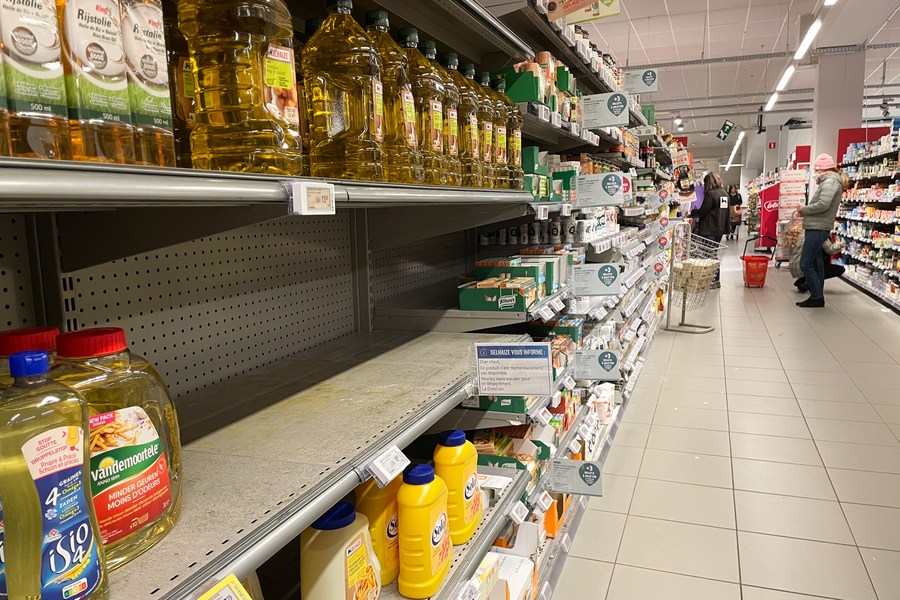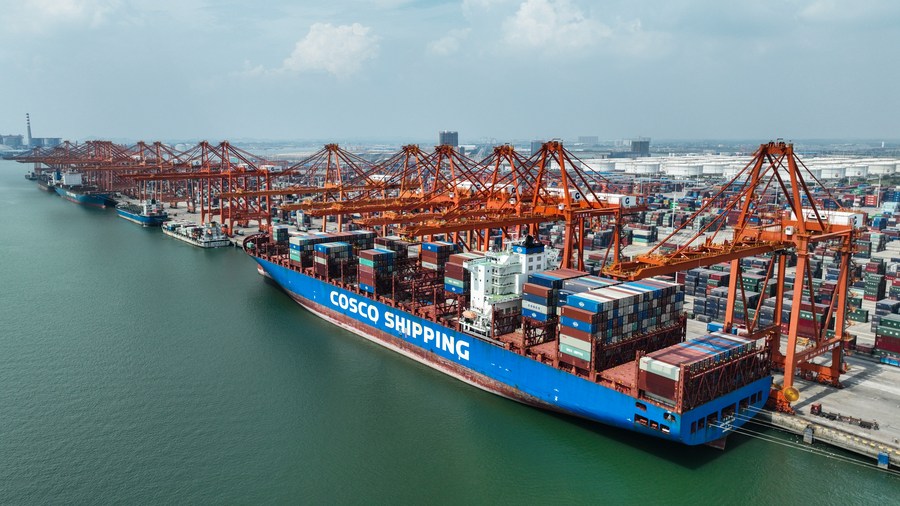
Photo taken on April 1, 2022 shows the shelf of a supermarket in Brussels, Belgium. (Xinhua/Zheng Huansong)
PARIS, Feb. 22 -- One year into the Russia-Ukraine conflict, France and the rest of Europe are finding themselves in a delicate position, teetering under the impact of inflation, an energy crisis, and slowing economic growth.
INFLATION, ENERGY CRISIS
The Russian-Ukrainian conflict has pushed up inflation in France. Price hikes have reached record level in the country since February last year.
Data from the National Institute of Statistics and Economic Studies (INSEE) show that France's annual inflation rate stood at 5.2 percent for 2022, after 1.6 percent in 2021 and 0.5 percent in 2020.
Energy prices alone have increased by 23.1 percent yearly, followed by 6.8 percent for food and 3 percent for manufactured goods and services.
Energy prices in the country reached record high in 2022, with natural gas traded at 340 euros (364 U.S. dollars) per megawatt-hour (MWh) on Aug. 26 last year, against under 30 euros (32 dollars) per MWh at the same time in 2021.
Faced with soaring energy prices, the tariff shield introduced in 2021 by the French government has been extended, particularly for small businesses. An Energy Sobriety Plan was officially unveiled on Oct. 6, 2022, aiming to reduce the country's overall energy consumption by 10 percent within the next two years and by 40 percent by 2050.








